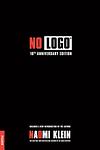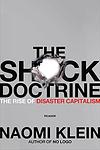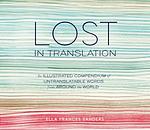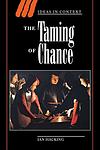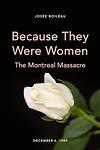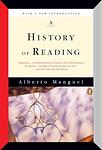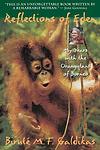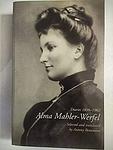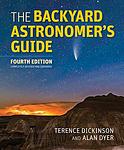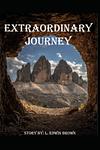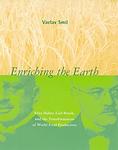The Greatest Canadian, Multiple "Nonfiction" Books Since 1980
Click to learn how this list is calculated.
This list represents a comprehensive and trusted collection of the greatest books. Developed through a specialized algorithm, it brings together 300 'best of' book lists to form a definitive guide to the world's most acclaimed books. For those interested in how these books are chosen, additional details can be found on the rankings page.
Genres
Countries
Date Range
Reading Statistics
Click the button below to see how many of these books you've read!
Download
If you're interested in downloading this list as a CSV file for use in a spreadsheet application, you can easily do so by clicking the button below. Please note that to ensure a manageable file size and faster download, the CSV will include details for only the first 500 books.
Download-
1. No Logo by Naomi Klein
This book explores the negative effects of corporate branding and globalization. It critiques the marketing strategies of large corporations, arguing that they exploit workers and manipulate consumers. The author also discusses how these corporations have a significant influence on culture and public space. The book suggests that consumer activism and grassroots movements can serve as effective counter-forces to corporate power.
-
2. Outliers by Malcolm Gladwell
The book examines the factors that contribute to high levels of success. Through a compilation of anecdotes and analyses of various cultural phenomena, it argues that success is not simply a result of individual talent or intelligence, but rather the result of a combination of opportunities, hidden advantages, cultural legacies, and the amount of time spent practicing a specific task. The author challenges the traditional notion of the "self-made" individual by emphasizing the importance of external influences and timing, such as being born in a certain era or having access to specific resources, in shaping one's ability to achieve extraordinary accomplishments.
-
3. The Glenn Gould Reader by Glenn Gould
"The Glenn Gould Reader" is a compilation of writings by a renowned Canadian pianist, known for his unique and insightful perspectives on music and culture. This collection offers a window into the artist's mind, featuring a diverse range of essays, articles, reviews, and interviews that explore his philosophies on performance, the intricacies of musical interpretation, and the role of technology in the arts. His articulate and often provocative commentary extends beyond classical music to touch upon a variety of subjects, reflecting his broad intellectual interests and distinctive voice in the world of music and beyond.
-
4. My Father's House by Sylvia Fraser
The book is a harrowing memoir that delves into the author's traumatic childhood, marked by the dark secret of her father's sexual abuse. The narrative unfolds as the author, after years of repressed memories, begins to confront the truth about her past. This journey of self-discovery and healing challenges her understanding of family, memory, and identity. The memoir is a poignant exploration of the long-term effects of abuse and the complex process of recovery, as the author grapples with the betrayal by a person who should have been her protector, ultimately striving to reclaim her sense of self.
-
5. The Shock Doctrine: The Rise of Disaster Capitalism by Naomi Klein
This book explores the concept of "disaster capitalism", the idea that global capitalism thrives on disaster and chaos. The author argues that free market policies are often pushed through while countries are reeling from wars, natural disasters, or economic crises. She provides a historical analysis of these events, from Chile in the 1970s, to Russia in the 1990s, to the war in Iraq, demonstrating how governments and corporations exploit these periods of shock to implement economic reforms that would otherwise be rejected.
-
6. The World Of Economics by John Eatwell, Murray Milgate, Peter Newman
"The World of Economics" is a comprehensive reference book that serves as an essential guide to the field of economics, offering a wide-ranging compilation of entries penned by an international group of economists and scholars. The work covers key concepts, theories, and figures that have shaped economic thought, providing readers with a deep understanding of both historical and contemporary economic issues. Its encyclopedic format presents a wealth of information on various topics, including economic policy, market structures, and foundational principles, making it a valuable resource for students, professionals, and anyone interested in the complexities of how economies function and evolve.
-
7. Lost In Translation by Eva Hoffman
"Lost in Translation" is a memoir that explores the profound complexities of identity and language through the lens of a young girl's emigration from Poland to Canada and then to the United States. The narrative delves into the emotional and psychological challenges of adapting to new cultures, the sense of displacement, and the search for belonging. It poignantly captures the experience of losing one's homeland and the struggle to assimilate while maintaining a connection to one's roots. The author reflects on the nuances of language and the deep connection between language and self, offering insights into the immigrant experience and the transformative power of embracing multiple worlds.
-
8. The Taming of Chance by Ian Hacking
"The Taming of Chance" delves into the evolution of the concept of probability and its societal implications. The book takes the reader through the historical progression of probability and statistics, illustrating how they have shaped and been shaped by societal norms. The author highlights the profound impact of this mathematical concept on various aspects of life, including law, science, and philosophy, and how it has fundamentally changed our perception of the world.
-
9. The Montreal Massacre by Louise Malette and Marie Chalouh
The book provides a detailed account of a tragic event that took place at an engineering school in Montreal, where a gunman targeted female students, resulting in the loss of numerous lives. The authors delve into the societal and cultural factors that may have contributed to the perpetrator's motivations, examining issues of gender-based violence and misogyny. Through interviews, personal reflections, and analysis, the book seeks to honor the victims and explore the broader implications of the event for Canadian society and the ongoing struggle for gender equality.
-
10. The Egyptian, Syrian, And Iraqi Revolutions by Hanna Batatu
The book provides a comprehensive analysis of the socio-political dynamics and revolutionary movements in Egypt, Syria, and Iraq throughout the 20th century. It delves into the historical context, key political figures, and socio-economic conditions that led to the uprisings and transformations in these countries. The author meticulously examines the interplay of various social classes, political parties, and external influences, offering a detailed narrative and critical insights into the mechanisms of power, resistance, and change within these Arab states.
-
11. Power Of Now by Eckhart Tolle
The book is a guide to spiritual enlightenment that emphasizes the importance of living in the present moment to achieve true happiness and fulfillment. It argues that many people are trapped in their own minds, dwelling on past regrets or future anxieties, which creates a barrier to inner peace. Through a series of insightful questions and meditations, the book encourages readers to shed their ego-based state of consciousness, embrace the now, and discover a deeper sense of self beyond their thoughts and emotions. The central message is that by connecting with the present moment, individuals can free themselves from suffering, access a higher state of awareness, and experience a profound transformation in their daily lives.
-
12. Four Agreements : A Calendar For Wisdom And Personal Freedom by Don Miguel Ruiz
The book presents a framework for personal growth and freedom based on four fundamental principles that encourage individuals to live with integrity, love, and happiness. These agreements are: to be impeccable with your word, to not take anything personally, to not make assumptions, and to always do your best. By adopting these agreements, the book suggests that one can break free from limiting beliefs that create suffering and instead, lead a life filled with peace, grace, and empowerment. The author draws upon ancient Toltec wisdom to offer a powerful code of conduct that can rapidly transform our lives to a new experience of freedom, true happiness, and love.
-
13. The Social Construction Of What? by Ian Hacking
"The Social Construction of What?" explores the concept of social constructionism, a theory that argues various aspects of our everyday lives, including knowledge, truth, and social realities, are shaped by social processes and interactions. The book critically examines how this theory is applied across different fields such as science, mathematics, technology, and gender, questioning what exactly is being constructed and the implications of labeling something as socially constructed. The author delves into the debates and controversies surrounding social constructionism, offering a nuanced perspective on its uses and limitations, and encourages readers to consider how social factors influence our understanding of the world.
-
14. The Warrior's Honor: Ethnic War and the Modern Conscience by Michael Ignatieff
The book explores the moral and ethical challenges faced by modern societies when confronted with ethnic conflicts and wars. It delves into the complexities of humanitarian intervention, the role of the media in shaping public perception, and the struggle to reconcile the principles of human rights with the brutal realities of ethnic violence. Through a series of case studies and philosophical reflections, the author examines the tension between the universal claims of morality and the particular loyalties of kinship and nationality, questioning the capacity of moral conscience to mediate in conflicts where deep-seated cultural and ethnic animosities are at play.
-
15. A History Of Reading by Alberto Manguel
This book offers a captivating exploration of the evolution of reading throughout the centuries, tracing its transformation from a privileged art practiced by a select few to a widespread pastime enjoyed by many. The narrative delves into the intimate relationship between readers and texts, examining how reading practices have shaped human history, culture, and personal lives. Through a tapestry of anecdotes, analysis, and personal reflections, the work celebrates the reader's role in giving meaning to the written word and considers the future of reading in the digital age.
-
16. La Charte Du Mandé Et Autres Traditions Du Mali by Aboubakar Fofana, Jean-Louis Sagot
"La Charte Du Mandé Et Autres Traditions Du Mali" is a comprehensive exploration of the rich historical and cultural heritage of Mali, focusing on the ancient Mandé Charter, also known as the Manden Charter. This seminal text delves into the origins and implications of this 13th-century document, which is one of the earliest forms of human rights charters. The book not only examines the charter's principles of social justice, equality, and political ethics but also contextualizes it within a broader spectrum of Malian traditions, shedding light on the country's profound historical narratives and the enduring cultural practices that continue to shape its identity.
-
17. Reflections Of Eden by Birute Galdikas
"Reflections of Eden" is a captivating memoir by a pioneering primatologist who delves into her immersive experiences studying orangutans in the remote rainforests of Borneo. The book chronicles her profound journey, beginning as a young researcher inspired by Louis Leakey and evolving into one of the world’s leading authorities on orangutans. Through her vivid narrative, the author shares the challenges and triumphs of her fieldwork, her deepening understanding of orangutans, and her relentless efforts in conservation. The memoir not only highlights scientific discoveries but also explores the emotional and ethical complexities of her life’s work in the context of the environmental and cultural pressures impacting the region.
-
18. Shadows Of Tender Fury by Subcomandante Marcos
"Shadows of Tender Fury" is a compilation of letters and communiqués written by Subcomandante Marcos, the spokesperson for the Zapatista Army of National Liberation (EZLN) in Chiapas, Mexico. The book documents the period following the 1994 Zapatista uprising, providing insights into the ideological motivations, social justice issues, and the demands for indigenous rights that define the movement. Through these writings, Marcos articulates the struggles and philosophies of the Zapatistas, blending political analysis with poetic eloquence, and offers a compelling voice in the fight against global economic inequality and for the empowerment of marginalized communities.
-
19. The Freud Reader by Sigmund Freud
"The Freud Reader" is a comprehensive anthology that provides a key selection of Sigmund Freud's most important writings, spanning the entire length of his career. Edited by a prominent Freud scholar, this collection includes complete texts of some of his most famous works, as well as excerpts from his lesser-known writings. The book is designed to give readers a clear sense of Freud's development as a thinker and writer, presenting his ideas on psychoanalysis, the unconscious mind, dreams, the theory of sexuality, and the structure of the psyche. This reader serves as an essential introduction to Freud's groundbreaking theories and his contributions to the understanding of human psychology.
-
20. The Diaries by Alma Mahler
"The Diaries" is a personal and introspective account that offers a glimpse into the life of Alma Mahler, a prominent socialite and composer in early 20th-century Vienna. Through her diaries, Alma provides a vivid portrayal of her complex relationships, her struggles and triumphs in the artistic community, and her interactions with some of the most influential artists and intellectuals of her time. The entries reveal her inner thoughts, passions, and the challenges she faced as a woman navigating her identity and desires in a male-dominated society.
-
21. A Month And A Day by Ken Saro-Wiwa
"A Month and a Day" is a poignant memoir that recounts the personal and political struggles of an environmental and human rights activist in the Niger Delta region of Nigeria. The author details his non-violent fight against the ecological destruction and economic exploitation wrought by multinational oil companies and the Nigerian government. His narrative provides an intimate glimpse into his dedicated activism, the resulting political imprisonment, and the broader socio-political issues facing his community. Through his eyes, readers gain insight into the complex interplay between environmental degradation, ethnic and economic tensions, and the relentless pursuit of justice and sustainability.
-
22. The Backyard Astronomer's Guide by Terence Dickinson
"The Backyard Astronomer's Guide" serves as an essential resource for amateur astronomers, providing comprehensive insights into the tools, techniques, and enthusiasm needed to explore the night sky from one's own backyard. The book offers practical advice on choosing and using telescopes and other equipment, tips for observing planets, stars, and galaxies, and updated information on digital photography, which allows readers to capture spectacular celestial images. It also addresses modern developments in technology and stargazing techniques, making it a valuable guide for both beginners and seasoned stargazers looking to enhance their astronomical experience.
-
23. 12 Rules For Life by Jordan B. Peterson
"12 Rules for Life" by Jordan B. Peterson is a self-help book that offers practical advice on how to navigate the complexities of life and find meaning and purpose. Drawing from a wide range of disciplines, including psychology, philosophy, and biology, the author presents twelve rules that encourage readers to take responsibility for their actions, confront chaos and suffering, and strive for personal growth and fulfillment. With a blend of personal anecdotes, scientific research, and philosophical insights, this book aims to provide readers with practical tools to improve their lives and find harmony in an increasingly chaotic world.
-
24. The Boy In The Moon: A Father’s Journey To Understand His Extraordinary Son by Ian Brown
"The Boy in the Moon" is a memoir written by Ian Brown, a Canadian journalist, about his life with his severely disabled son, Walker. The book chronicles Brown's struggles to understand and care for his son, who suffers from a rare genetic disorder that leaves him unable to walk, talk, or even eat on his own. Brown's journey is one of heartbreak, frustration, and ultimately, acceptance, as he learns to love and appreciate his son for who he is, rather than who he might have been. Through his compelling and deeply personal narrative, Brown sheds light on the challenges faced by families with disabled children, and offers a poignant meditation on the nature of love, family, and the human condition.
-
25. Enriching The Earth by Vaclav Smil
This book provides a comprehensive exploration of the pivotal role that the Haber-Bosch process has played in transforming agriculture and supporting global population growth. By synthesizing ammonia from nitrogen and hydrogen, this technological innovation enabled the mass production of fertilizers, significantly boosting crop yields and thus, food supply. The narrative delves into the scientific, historical, and environmental aspects of this revolution, examining both its monumental contributions to human society and the challenges it poses, including resource depletion and environmental degradation. Through a detailed analysis, the work underscores the delicate balance between technological advancement and sustainable development.
Reading Statistics
Click the button below to see how many of these books you've read!
Download
If you're interested in downloading this list as a CSV file for use in a spreadsheet application, you can easily do so by clicking the button below. Please note that to ensure a manageable file size and faster download, the CSV will include details for only the first 500 books.
Download